Modern dentistry offers a wealth of solutions when it comes to enhancing your smile and improving oral health. Two of the most talked-about options are veneers and implants. But what exactly are they? How do they differ? And most importantly, which one is the right choice for you?
In this article, we’ll dive deep into veneers and implants, exploring their strengths, applications, and how to make an informed decision about your dental health. It’s time to invest in your smile and your confidence. Let’s get started!
What Are Veneers?
Veneers are thin shells, typically made of porcelain or composite resin, that are custom-fitted and bonded to the front surface of your teeth. They act as a facade, covering defects like discoloration, chips, or gaps and presenting a perfectly shaped, pearly white front. Think of them as the cosmetic makeup of dentistry – they create a beautiful, natural-looking smile without invasive procedures.
They’re especially popular with individuals seeking to make aesthetic improvements to their smile. However, they require healthy gums and enough enamel on the tooth to support the veneer.
Ideal Candidates for Veneers
People who choose veneers often do so to address various dental concerns. Veneers can drastically improve the appearance of your teeth, ensuring you’re always ready to flash a confident smile. So, who exactly should consider veneers? Here are some instances when veneers could be your ideal choice:
- Discolored Teeth: If your teeth are significantly discolored due to root canal treatment, stains from certain medications like tetracycline, excessive fluoride use, or large resin fillings, veneers can provide an effective solution.
- Worn Down Teeth: Teeth that have been gradually worn down over time due to aging, grinding, or dietary habits can be restored with veneers.
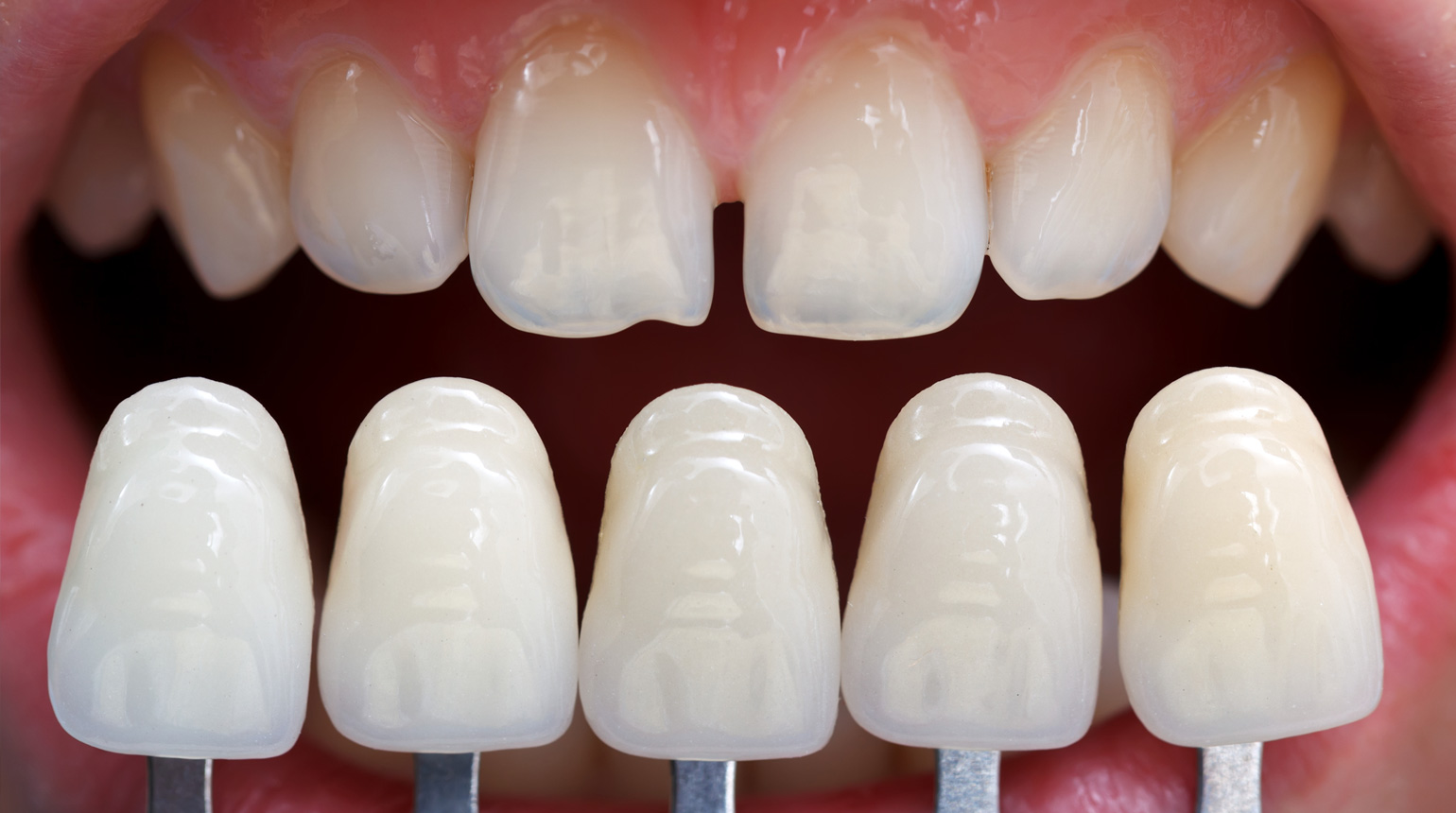

- Chipped or Broken Teeth: Veneers are an excellent option for repairing chipped or broken teeth, providing a natural-looking restoration.
- Misshapen Teeth: If your teeth are uneven, crooked, or have visible defects like craters or bulges, veneers can help you achieve a uniform, balanced smile.
- Gapped Teeth: Veneers can effectively close spaces between your teeth, enhancing the overall appearance of your smile.
WebMD says that veneers are usually done because you want your teeth to look better, so they’re considered “cosmetic” and aren’t usually covered by insurance. (1)
Advantages of Veneers
Veneers offer a myriad of advantages, making them a popular choice for cosmetic dentistry:
- Natural Appearance: Veneers are made to match the color, shape, and size of your natural teeth, making them virtually indistinguishable from the rest of your smile.
- Non-Invasive Procedure: The veneer application process is non-invasive compared to other dental restoration procedures. It usually requires just a small amount of enamel removal, preserving the natural structure of your teeth.
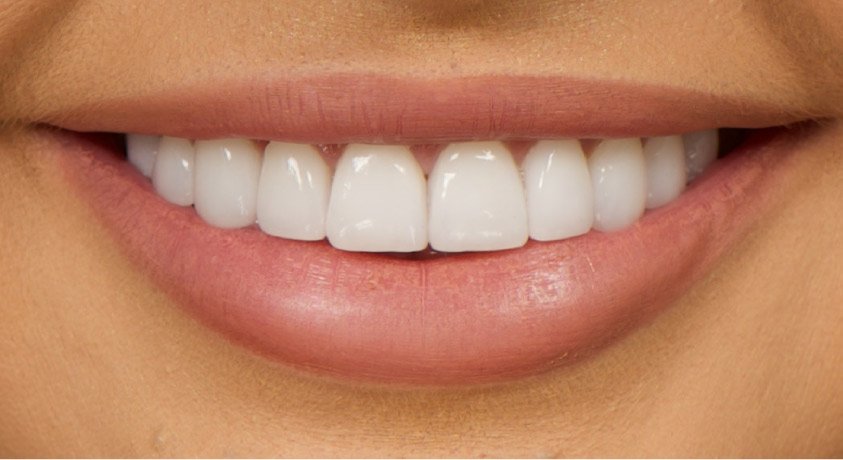
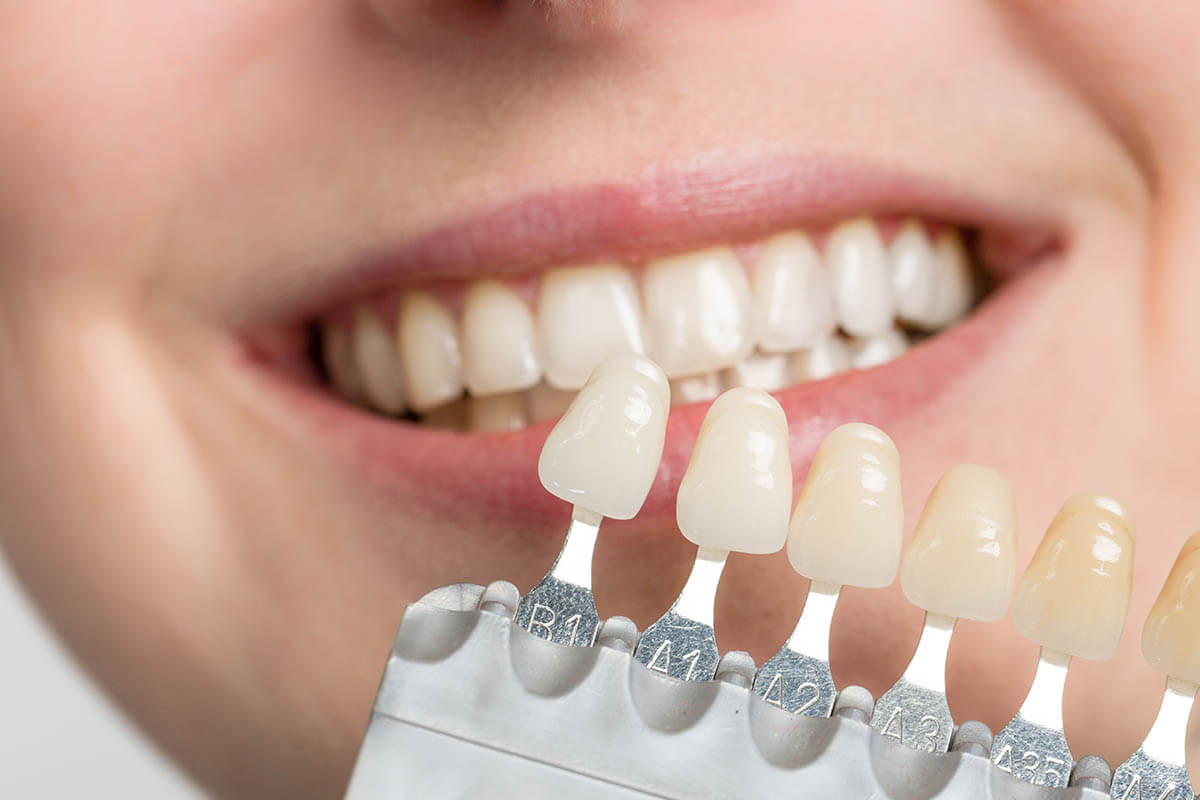
- Durability: With proper care, veneers can last many years, making them a long-term solution for aesthetic dental issues.
- Stain Resistance: Porcelain veneers are highly resistant to stains, so your smile can stay bright and white for longer periods.
- Quick Transformation: Veneers offer an immediate transformation of your smile, ideal for individuals seeking rapid improvements for aesthetic purposes.
Disadvantages of Veneers
While veneers offer numerous benefits, it is crucial to consider the potential drawbacks before making a decision:
- Irreversible Process: Once your tooth’s enamel has been removed to place a veneer, the process cannot be reversed. Your tooth will always need to be protected with a veneer or crown.
- Cost: Veneers are typically more expensive than alternative cosmetic treatments and are often not covered by dental insurance as they are considered a cosmetic procedure.


- Sensitivity: Some people might experience increased sensitivity to hot and cold temperatures after veneers are placed, as the procedure involves the removal of some
- Susceptible to Damage: Veneers can chip or crack like natural teeth, requiring replacement. Avoid chewing on complex objects and foods to prevent damage.
The Process of Getting Veneers
At Pinnacle Dental Group, we make the veneer application process as comfortable and straightforward as possible. Dental veneers will usually take two appointments to be correctly placed. Our experienced dentists will remove any decay or tooth tissue and prepare the surface of your teeth for veneer placement. They’ll then take a wax impression according to your exact specifications and send it to a dental lab where custom veneers are made.
At your second appointment, our dentist will check the veneer’s size, shape, and color to ensure a proper fit. An adhesive will then be used to bond the veneers to your teeth, creating a secure, long-lasting bond. Finally, a safe, high-intensity light will harden the adhesive and complete the process.
After your veneers are properly placed, you can expect them to function like regular teeth. With proper care and maintenance, it can last for many years, providing a beautiful smile that boosts your confidence and enhances your overall appearance.
What Are Dental Implants?
Dental implants are artificial tooth roots, usually made from titanium, that are surgically inserted into the jawbone. They provide a sturdy base for supporting one or more artificial teeth, known as crowns. A connector – known as an abutment – is placed on top of the dental implant to hold and support the crowns. The crowns are custom-made to match your natural teeth and fit your mouth.
Unlike veneers, which address dental issues on a cosmetic level, dental implants replace the entire tooth from root to crown and are typically used when a tooth has been lost or extracted. They offer a permanent solution for tooth replacement and are often used as an alternative to dentures or bridgework that doesn’t fit well. This treatment option improves the aesthetics of your smile and your oral health, as it prevents bone loss in the jaw, maintains the alignment of surrounding teeth, and facilitates normal chewing and speaking.
Ideal Candidates for Dental Implants
Dental implants can be a life-changing solution for individuals looking to restore functionality and aesthetics to their smile. However, only some are suitable candidates for this procedure. Here are some key conditions that make a person an id kieal candidate for dental implants:
- Healthy Gums: Dental implants require a strong foundation, meaning having healthy gums is necessary. People with signs of gum disease, such as gingivitis or periodontitis, may need to have these conditions treated before proceeding with implants.
- Sufficient Bone Density: For the implant to anchor effectively, there must be enough bone in the jaw. People with insufficient bone density might need a bone graft before getting dental implants.
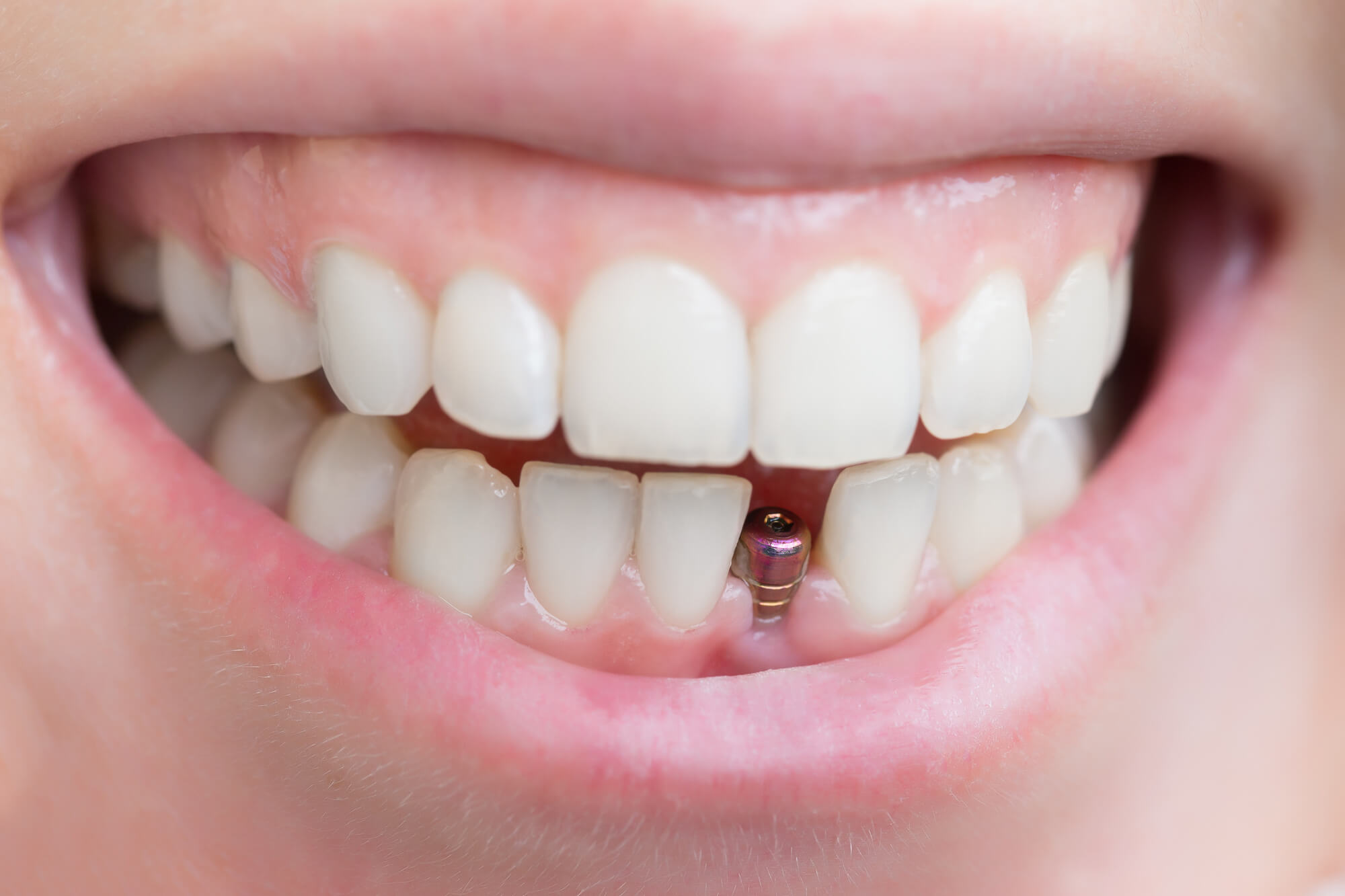

- Good Overall Health: The implant process involves surgery, so it’s essential that you’re in good general health. Conditions like diabetes, cancer, heart disease, or habits like smoking or heavy drinking can affect healing and make the treatment less successful.
- Commitment to Oral Hygiene: Implants require the same care as natural teeth, including regular brushing, flossing, and dental check-ups. A commitment to maintaining good oral hygiene is crucial for the longevity of the implants.
- Missing One or More Teeth: Those who have lost one or more teeth due to decay, disease, or trauma are ideal candidates for dental implants. They provide a permanent, stable, and aesthetically pleasing tooth replacement solution.
Advantages of Dental Implants
Dental implants have become increasingly popular as a long-term solution for replacing missing teeth in recent years. Here are some of the key advantages of dental implants:
- Improved Appearance: Dental implants are designed to look and feel like natural teeth, giving you a more aesthetic and confident smile.
- Durability: With proper care, dental implants can last a lifetime. Unlike other tooth replacement options, such as dentures or bridges, which may need to be replaced every 5-10 years.
- Preserving Jawbone: When a tooth is lost, the jawbone underneath can start to deteriorate. Dental implants help protect jawbone density and prevent further bone loss.
- No Dietary Restrictions: Unlike dentures, which can limit your food choices, dental implants allow you to eat your favorite foods confidently.

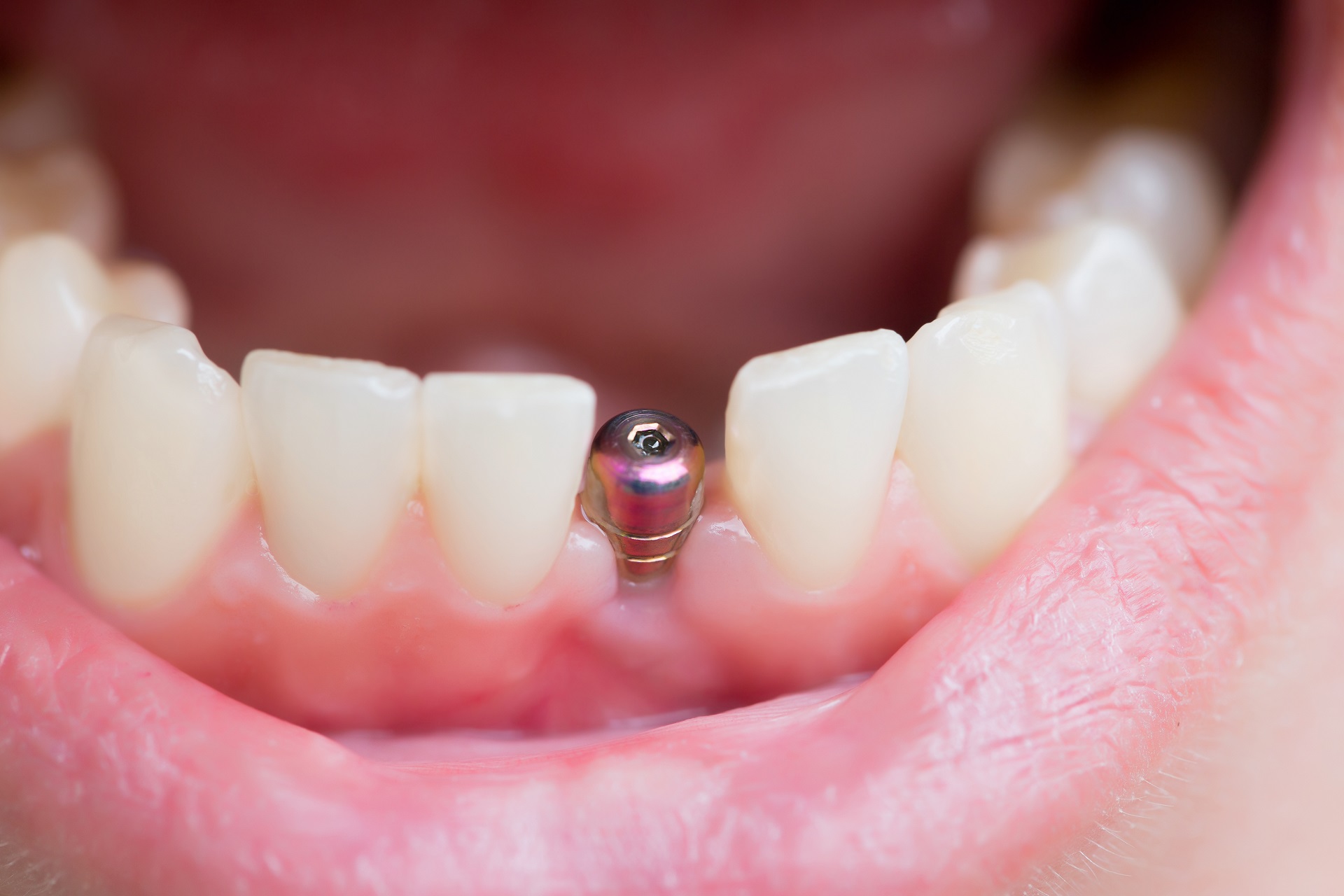
- Improved Speech: Missing teeth or ill-fitting dentures can cause slurred speech. Dental implants provide a stable foundation for artificial teeth, enhancing speech and restoring confidence.
- Convenience: Unlike removable dentures, dental implants are permanent and do not require any special care or adhesives. Simply brush and floss them like natural teeth.
- Cost-effective: While dental implants may have a higher initial cost compared to other tooth replacement options, they are a cost-effective long-term solution. With proper care, they can last a lifetime, saving you the time and money of replacing dentures or bridges every few years.
Disadvantages of Dental Implants
While dental implants offer many benefits, like any other medical procedure, they may also have some disadvantages. Some potential drawbacks of dental implants include:
- Surgical Procedure: Getting dental implants involves a surgical procedure, which may be daunting for some people. However, technological advancements and anesthesia have made the process relatively painless and comfortable.
- Healing Time: After surgery, it can take several months for the implant to fuse with the jawbone before the final restoration is placed. This healing time varies depending on individual healing abilities and the location of the implant.
- Expensive: Dental implants may cost more upfront than other tooth replacement options. However, considering their long-term benefits, they can be a more cost-effective solution in the long run.

The Process of Getting Dental Implants
The first step in getting dental implants is to schedule a consultation with our dental specialist. During this visit, we will assess your oral health and determine if you are a suitable candidate for dental implants. If so, the next step is to schedule surgery with our specialist. The surgery typically takes about an hour and is done under local anesthesia or IV sedation.
After surgery, you will need some time to recover before coming back for the final restoration placement. During this healing period, it’s essential to follow all post-operative instructions and maintain good oral hygiene to ensure successful implant integration. Once your implants have healed and fused with the jawbone, we will place the final restoration on top of the implant, completing your new smile.
Our dental practice is committed to providing personalized and comprehensive treatment for each patient. If you are considering dental implants, don’t hesitate to schedule a consultation with us and learn more about this life-changing solution. Our team of experts will guide you through the process and help you choose the right implant for your unique needs.
Veneers vs Implants: Which Is Right for You?
While both veneers and implants are popular cosmetic dental procedures, they serve different purposes. Veneers are a great option for those looking to improve the appearance of their smile by correcting cosmetic imperfections, such as discoloration, chips, or gaps.
On the other hand, dental implants are a permanent solution for replacing missing teeth and provide both aesthetic and functional benefits. Ultimately, choosing between veneers and implants depends on your specific dental needs and goals. At Pinnacle Dental Group, our experienced dentists can help you make an informed decision and design a personalized treatment plan to achieve your desired results. Schedule a consultation today and take the first step towards a healthier, happier smile.
Frequently Asked Questions
Is it better to get veneers or implants?
It ultimately depends on your specific dental needs. Veneers are a great option for correcting cosmetic imperfections, while implants provide both aesthetic and functional benefits for replacing missing teeth.
Are veneers more expensive than implants?
The cost of veneers and implants can vary depending on several factors, including the number of teeth being treated, location, and the complexity of the case. Dental implants may have a higher upfront cost than veneers, but they are a more long-term solution that can be more cost-effective in the long run.
Do implants last longer than veneers?
With proper care, both veneers and implants can last a long time. Dental implants are designed to be a permanent solution, while veneers may need to be replaced after 10-15 years. However, this may vary depending on individual circumstances.
Which looks better, veneers or implants?
Both veneers and implants are designed to look and feel like natural teeth. However, veneers may appear more perfect, as they are custom-made and can correct imperfections in the shape, size, or color of your existing teeth. Implants provide a permanent tooth replacement option that blends seamlessly with your natural smile.
Why do people get veneers instead of implants?
People may opt for veneers instead of implants if they have cosmetic concerns, such as discoloration, chips, or gaps in their teeth. Veneers can provide immediate and dramatic results without the need for surgery or a significant time commitment. However, dental implants may be a better option for those who are missing one or more teeth and want a permanent solution with both aesthetic and functional benefits.
Final Thoughts
The choice between veneers and dental implants is highly individual and depends on your specific dental needs, lifestyle, and budget. Both options offer unique advantages and can significantly enhance your smile and overall oral health. Veneers provide a quick and non-invasive path to a more beautiful smile, correcting aesthetic imperfections. On the other hand, dental implants offer a permanent, functional solution for missing teeth, improving appearance and oral health.
Consult with our skilled dentists at Pinnacle Dental Group to explore your options and determine the best treatment plan for your smile. With their expertise and state-of-the-art technology, you can achieve the smile of your dreams and enjoy a lifetime of confident, healthy smiles. So why wait? Schedule a consultation today! Your perfect smile awaits at Pinnacle Dental Group.
References:
- WebMD
- American Cosmetic Dentistry
- Cleveland Clinic
